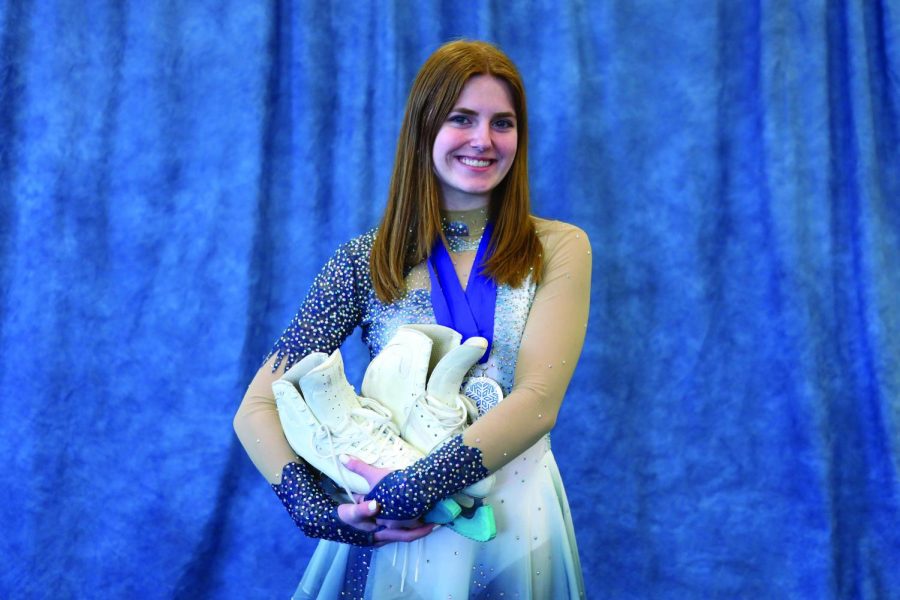Junior Ashley Makalous learned the importance of concentration and emotional interpretation in competitive figure skating.
Junior competitively ice skates before school
Skating has taught junior Ashley Makalous the importance of concentration and emotional interpretation
Q: When do you practice and what do you work on?
Junior Ashley Makalous: I skate at KCIC and my favorite thing about the rink is that it’s really quiet in the mornings so it’s easier to concentrate on my practices. I wake up early for practice because I don’t have another time since I’m typically busy after school with homework and school activities. My practices are typically at 5:45 am or 6:15 am, so I will wake up 45 minutes early to make sure that I am at the rink on time. My practices are around 30 minutes long so I will spend extra time at the rink in the morning for more practice time. Normally I get on the ice a couple minutes before my coaches and warm up by doing laps of different exercises. During my practices, if I have a competition coming up I will work on the skills in my program and make changes in the routine so it can be at its best when I’m competing.
Q: How has your skating progressed over the years?
AM: I have been skating since I was five which is 11 years. I took classes along with private lessons when I first started skating. With the system of classes, you graduate out of them once you get older. If you’re a competitive skater, you have to have a private coach. Most skaters have more than one coach when they get to a certain level in their skating career. I have two and they both focus on different aspects of skating.
Q: What life lessons have you learned from skating?
AM: Over the years, I have learned to never give up. Going through rough seasons can leave you defeated, but it is worth it to push back. I’m glad that I pushed through those times because it got me to have a better attitude and be a lot happier in my sport. I have been able to apply this mindset to my relationship with school and my friendships.
Q: How are competitions organized and what is your typical routine?
AM: I’m a unique skater in that I compete in several musical theater events. I compete in free skate, emotion interpretation and a character program. Emotion interpretation requires you to tell a story, the character program requires you to make a story based on the character. I wake up a few hours before competitions I need to be at, and prep my makeup and hair. Before I go to the rink, I practice my routines either on the ground or on fake ice and then I get breakfast on my way to the rink. Once I’m at the rink, I compete at my scheduled time and after the awards I rest until it’s time for my next program.
Q: What are your biggest accomplishments and proudest moments in skating?
AM: My biggest accomplishments are landing my axel which is a really hard jump in skating that takes years to perfect. It is also always a big accomplishment when I pass a level in skating because depending on how fast they exceed in testing and learning new skills then they move up a level. I have to spend a year perfecting every skill in order to move on so it is a huge accomplishment when I do. My last competition was such an amazing moment for me because when I stepped off the ice my coach was crying from my performance. The judges’ faces also lit up when I walked onto the ice which is always a great feeling. I’m extremely proud of my Omaha competition because I stepped away with three gold medals and made my coaches proud. It was such an amazing way to start the season.
